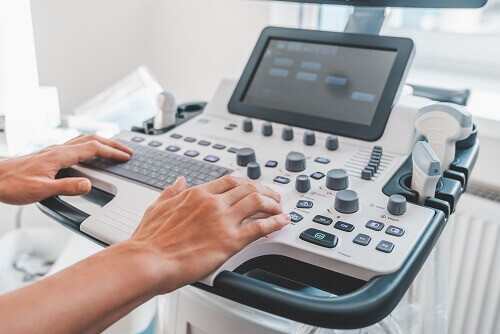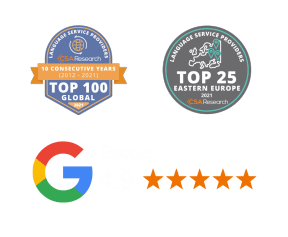Medical translation is one way of ensuring that medical information is transformed from one language into another, without barriers and with impeccable accuracy. The significance of doing this cannot be overstated, as healthcare information and innovation has to rapidly cross borders today.
Medical translation involves converting health documentation, educational materials, medical bulletins, and drug information sheets into different languages. If you are searching for professional help, contact us to find out how we can help you.
Why Are Medical Translations Important?
Medical translation focuses on healthcare-related documents, a practice that is integral to the dissemination of medical knowledge. It requires a unique set of skills and knowledge, including an in-depth understanding of medical terminology, procedures, regulatory requirements, and healthcare lingo.
Precision in medical translation is imperative, as it can involve life-changing decisions and treatments. Any error, no matter how minor, may have significant consequences on someone’s life. That is why the medical translation process is heavily regulated. It requires compliance with specific standards and guidelines, and often it has to be done by a sworn translator.
This regulatory framework ensures that the highest quality and ethical norms of the medical community are met. The specialist translators who work with private documentation adhere to the information security standards to keep the data private.
Why Are Medical Translations Important?
Medical translation eases health initiatives, as it facilitates the exchange of vital information, research findings, and best practices among healthcare professionals worldwide. It ensures that breakthroughs in medical science reach every corner of the globe. This contributes to the rapid response and management of global health crises.
Medical translation has a profound impact on patient care. The translation of patient information leaflets and medication instructions into multiple languages reduces medication errors and improves patient compliance. In emergencies, accurately translated medical records enable healthcare providers to offer immediate treatment to patients who speak different languages.
WOULD YOU LIKE A NON-BINDING OFFER? WE ARE WAITING FOR YOUR REQUEST!
WOULD YOU LIKE A NON-BINDING OFFER? WE ARE WAITING FOR YOUR REQUEST!
Medical Translation Services: What Documents Are Involved?
When do you need to use medical translation services? Whenever you need to translate some of your medical documentation into a target language. This may involve many types of text:
- epicrises,
- descriptions of clinical trials,
- medical histories,
- medical reports,
- results of laboratory tests,
- medical opinions,
- sick leaves,
- scientific publications,
- training materials for healthcare professionals,
- hospital treatment information cards,
- manuals and equipment descriptions,
- drug descriptions,
- quality control documentation,
- localization of articles and websites about medicine and medical technology.
Our team of professionals is experienced in translating these different types of documents. You can trust us with quality management, as we have been on the market for over 30 years.
Medical Translation Services: the Process
Medical translators adhere to high standards when working with texts. The project begins with an in-depth analysis of the source documents to understand their context, purpose, and technical requirements. This step involves identifying specific medical terminology and the target audience.
A skilled medical translator, proficient in both the source and target languages, begins the translation process. Each document undergoes several rounds of revisions and proofreading to ensure that the content is linguistically and factually accurate. The reviewers, who may be native speaker specialists or highly experienced translators, check for any errors or ambiguities. They may also verify the translation against the original document for consistency.
Quality assurance involves a multi-tiered approach. This includes the use of specialised software and translation tools that help in maintaining consistency for large projects featuring extensive medical terminology.
Medical translators need to have up-to-date knowledge of the medical and pharmaceutical sectors, which is why they continually review the industry news. This approach ensures that the final translated document remains medically precise.
Specialist Medical Translations
We work in various fields to ensure that you gain high-quality medical translations tailored to your needs. These specialisations include:
- Anaesthesiology
- Cardiology
- Dermatology
- Dialectology
- Endocrinology
- Forensic Medicine
- Genetics
- Gynaecology
- Health Prevention
- Homeopathy
- Hygiene
- Implantology
- Internal Medicine
- Material Science
- Medical Technology
- Neurology
- Nuclear Medicine
- Occupational Medicine
- Oncology
- Oral Medicine
- Orthopaedics
- Otorhinolaryngology
- Paediatrics
- Prosthetics
- Psychiatry
- Psychology
- Pulmonology
- Radiology
- Rehabilitation
- Rheumatology
- Sports Medicine
- Surgery
- Toxicology
- Urology
- Veterinary Medicine



Medical Technology Translations
The field of medical translation has been significantly transformed by the introduction of cutting-edge software. CAT tools today enhance the efficiency and accuracy of all kinds of translation work. Some of the most notable tools are translation memory systems, which store previously translated phrases and sentences. This helps to accelerate the translation process and ensure consistency is achieved across various documents.
Additionally, the software for terminology management and online glossaries help in dealing with complex medical terminology and jargon. These technologies support the demands for medical translations and, thanks to them, translators can manage large volumes of work while maintaining high standards of precision.
Medical Interpreting
Medical interpreting facilitates on-site communication between a medical professional and a patient who does not speak the same language. This service is essential in hospitals, clinics, and during medical conferences.
The real-time, accurate translation of spoken words requires practice. The interpreters must have a profound understanding of the medical concepts and be able to translate complex medical information quickly.
The presence of experienced medical translators significantly impacts the quality of healthcare delivery. Thanks to them, the patients receive accurate information about their diagnosis, treatment options, and medication instructions.
Translation of Medical Texts to the Target Language: Terminology
Medical vocabulary is one of the most complex lexicons, as each term carries significant implications in terms of diagnosis, treatment, and research.
Medical terms are highly technical, as each represents a specific concept. For example, ‘myocardial infarction’ and ‘cardiac arrest’ may seem similar to an inexperienced user. However, they represent different medical conditions, where misinterpretation could lead to critical errors. This can affect patient care as well as the medical outcomes.
The medical field is replete with pharmacological terms that translators have to be familiar with in the source and target languages. Pharmaceutical translations often require researching various drug names, which may vary significantly between countries and regions.
Medical translation often requires interdisciplinary knowledge, as a translator might encounter texts that intertwine medical information with legal, technical, or scientific data.
Choosing a Translation Agency for Medical Translations
To select an appropriate medical translation service, you need to dedicate some time towards careful consideration. Start by evaluating the agency’s expertise in the medical field. Ask if they have done a similar project before to make sure they are familiar with the medical terminology and procedures.
Equally important are the qualifications of the translators employed by the agency. Certified translators who have undergone rigorous training are more likely to produce reliable translations. Look for agencies whose translators have relevant medical backgrounds or education.
At Skrivanek, we meet all these requirements, and we also have ISO 9001 and 17100 certificates to attest to our accuracy.
Skrivanek: Certified Medical Translations
We understand the critical nature of medical and pharmaceutical texts, which is why our team prioritises accuracy and staying within the deadlines. We employ only experienced professionals with medical expertise for demanding translation projects.
You can trust us with various medical documents, including medical records, equipment manuals, and scientific articles. Our focus is on delivering contextually appropriate translations that adhere to the specific medical terminology.
We have earned the trust of many individual and B&B clients for our professional services. With our team of medical translation experts, your texts are in good hands.
Contact us for your free quote!
Some computer-assisted translation tools enhance this process further with integrated linguistic databases. As the translations progress, they offer synonyms, definitions, and context examples. They may also include spelling-checkers and grammar analysis tools.
What are the benefits of CAT Tools?
CAT tools increase the efficiency of the translation process by reducing the time and effort needed to translate the repetitive content that occurs in projects. This feature is invaluable for large projects, especially those with tight deadlines. The improved quality and consistency of the translations made with CAT tools help to enhance client satisfaction. This is why many language service providers prefer working with such tools.
Quality assurance features
The quality assurance features in CAT tools enhance the overall quality of the translated material, helping to exclude any inconsistencies. Automated error-checking identifies potential issues in the translated text, which may include spelling, punctuation, or grammatical errors. Version control and the ability to track changes allow for a detailed review of what modifications have been made, by whom, and when in collaborative translation projects. Many CAT tools also include the possibility of directly integrating client or reviewer feedback.
Why do we use CAT Tools at Skrivanek?
We utilise CAT tools at our agency because they significantly enhance the value we deliver to our clients. They enable us to provide translations that are both highly accurate and consistent across various documents.
The efficiency of CAT tools reduces turnaround times, allowing our project managers to meet tight deadlines without compromising quality. This quality assurance helps us by minimising errors and maintaining our high standards.
Contact us for a quote!
WHAT OUR CUSTOMERS SAY ABOUT US
Vielen Dank für Ihre qualifizierten Übersetzungen und die hervorragende Kundenbetreuung.
Herzlichen Dank für die sehr gute und nette Zusammenarbeit!
Ich empfinde die Zusammenarbeit mit Skrivanek als höchst angenehm. Skrivanek reagiert immer vorbildlich!
Rasch, zuverlässig, kunden- und lösungsorientiert, sehr engagiert. Wir schätzen die Zusammenarbeit mit Skrivanek sehr.
Vielen Dank für die perfekte Unterstützung & tolle Zusammenarbeit in den vergangenen Jahren! Wir freuen uns auf die kommenden Jahre… weiter so!
Super schnelle Bearbeitung und immer bestens informiert!
Alles Bestens, entsprechend erhalten Sie von uns auch viele Aufträge!
Sehr schnelle Reaktionszeit, klare Fristen und deren Einhaltung.
NEARLY 30 YEARS OF EXPERIENCE!
We provide professional translations that meet the highest quality standards.
100+
language combinations in portfolio
100%
of our clients would recommend us
50+
fields of expertise





